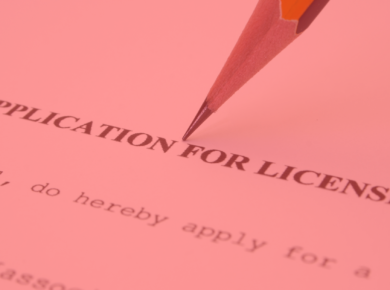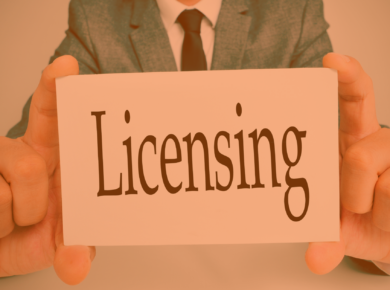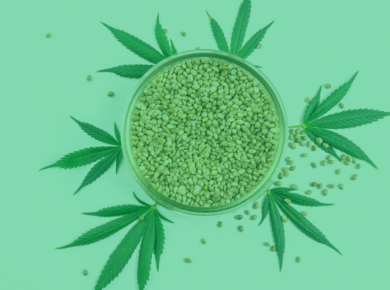In May 2019, the hemp industry experienced a pricing crash like never seen before. Over the course of 45 days, the average cost of CBD dropped 30%. There are also indicators that CBD, especially isolate, prices will continue to decrease.
At the beginning of May 2019, the cost of a single kilo of CBD isolate was $6000 a kilo. This dropped to an average price of $5000 / kilo. Spot prices for kilos from smaller labs continues to drop into the $4000’s and upper $3000’s. This price fluctuation impacts farmers, processors and product manufacturers, but in different ways. What is driving this price drop? As a CBD buyer, how do you take advantage of this opportunity? Should you lock in prices? As a processor or farmer, how do you navigate the plummeting prices? How low can it go?

What is Driving this Price Drop?
There are two factors driving prices down, supply and demand. The supply of CBD available to the market is growing steadily. New businesses are entering the market, and existing extractors scale up their operation. For the first time in CBD, there is a clear surplus of CBD material, including CBD Isolate. In fact the largest extractors are sitting on thousands of kilos in inventory. Extraction businesses are all growing, and they have a need for cash. They have to sell material to continue to build market share.
Check CBD Isolate prices on Kush.com now >>
This is where a vicious cycle begins. Extractors sell CBD Isolate below market price to pay their bills, and the market price drops. Now, extractors must sell more material for the same amount of profit. To drive more sales they drop the price, and the cycle repeats. There is another consideration. The fear that any CBD extraction material left in inventory, loses value at harvest. We know that the 2019 hemp harvest will be worth less per pound than the 2018 harvest.
The most overlooked factor impacting price is that demand for CBD has fallen. On May 15th, a leading merchant service provider, Elavon, stopped processing credit cards for the CBD industry. There was an immediate ripple effect, as 50% of all B2C CBD sales occur online. Product manufacturers lost their ability to process transactions, and online sales stopped. The industry is still searching for an easy, permanent payment processing solution.
How Do You as a Buyer Take Advantage of this Opportunity?
Stay in touch with multiple extractors and create competing demand for your business. You know that the prices are falling, and the extractors know this as well. If you can have two or more processors bid for your business, you will get a better deal.
You can leverage a professional representative to leverage the market on your behalf. The Kush.com supply chain managers combine the buying power of many partners into a large order. This enables our team to secure the best available rate for CBD, every time.
Have you heard about the Texas Hemp Convention? Click here to learn more!
As a CBD Isolate Buyer, Should You Lock in Prices?
Yes, we recommend locking in 30%-40% of your CBD needs from here until November. As prices continue to fall, we get closer to the bottom line where price is non-negotiable. We are close to the pricing bottom based on the cost of processing. Also, locking in price protects your business from a CBD shortage. As a population we consume more CBD than ever. Biomass ran out earlier this year than last year, and we don’t know if the CBD material will last.
As a Processor, How Do You Navigate the Plummeting Prices?
Model your business. Analyze the costs associated with your extraction process. Take into consideration the cost of equipment, staffing, overhead and other factors. Then compare your total cost with buying crude or distillate, and your business focusing on higher level extractions. Make sure to account for the diminishing quality of biomass available in the market. This means more turns of your machine and more labor for the same volume of end product.
How Low Can it Go?
The days of CBD isolate shortages and huge margins may be gone, and never coming back. I believe the bottom of the market is $3000 / kilo of CBD Isolate. This price factors the cost of biomass at $2.50 / % pt / lb, and charging a small fee for processing. This price will occur if sellers become desperate to dump material before the next crop.
Curious what CBD Isolate is selling for right now? Check out Kush.com >>
When the 2019 harvest hits, and the surplus of hemp biomass arrives, the cost of biomass could drop to as low as $3.50 / lb! Put in perspective, that price is still twice the value of a tobacco crop per acre, and tobacco farmers are ready. If these assumptions are true, the new floor will be $2300 / kilo of CBD.
Conclusion:
The price volatility of CBD is indicates that our industry is sensitive to changes in supply and demand. To recap, the gradual increase in the industry total CBD production, mixed with the lack of access to credit card processors resulted in a 30% price drop. This shows that either a decrease in demand or increase in supply can quickly move the market. This is a small precursor to harvest 2019, where total available material will double. I fear the industry has a fierce and unavoidable oversupply problem. There are two potential solutions that will produce wealth and riches. The FDA can provide guidance enabling large brands and retailers to pursue CBD. The USDA opens up Import / Export so high quality, USA grown, hemp extract can ship across the world.
Until then, protect your business and reach out to our team to secure sales for next year’s harvest.
Onwards and Upwards,
Michael Gordon, Co-CEO
In the meantime, check out one of our top isolate vendors if you’re looking for a consistent supplier:




